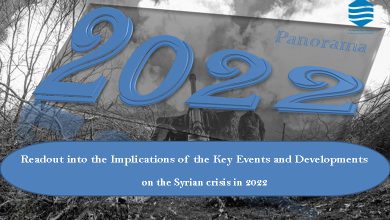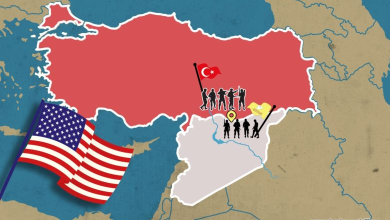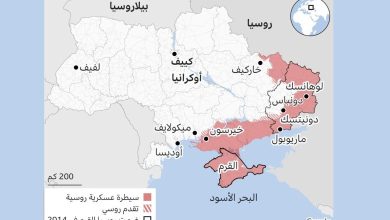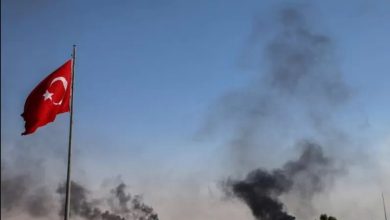
Will Israel follow through with its threats to wage war against Hezbollah?
Aram Said – Researcher at Al-Furat Center for Studies
The drums of war between Israel and Hezbollah are resounding louder than ever since the conflict in Gaza erupted on October 7, 2023. While Hezbollah, along with other Iran-aligned factions, initially joined the conflict to ease pressure on Hamas, their involvement has been tightly controlled by both Hezbollah and Israel. Neither side wishes to escalate the conflict, fearing the potential for regional destabilization and unpredictable outcomes.
One factor preventing escalation is Iran’s instructions to Hezbollah to limit attacks on Israel, aligning with Iran’s strategy to exert sustained and balanced pressure on Israel while aiming to de-escalate the Gaza conflict. Western and American pressures on Israel also seek to prevent a broader confrontation with Hezbollah in the Northern front, wary of escalating regional and international tensions.
Since the onset of the conflict in Gaza, ongoing daily skirmishes have led to the loss of 479 lives in Lebanon, comprising 313 Hezbollah combatants and 93 civilians(1), alongside 15 Israeli soldiers and 11 civilians. The situation has recently escalated significantly. Can global diplomatic initiatives effectively ease tensions, or has Israel resolved to engage in war with Hezbollah? Moreover, would Iran and the United States intervene directly in the event of this war?
The level of escalation has risen significantly in recent months.
Since May of this year, Hezbollah has intensified its attacks on Israeli positions, carrying out 325 attacks in that month alone, averaging 10 attacks per day. There has been a noticeable shift in Hezbollah’s tactics, including the deployment of anti-tank missiles and drones.(2) Of particular concern was the use of the “Hudhud-3” drone, which breached Israeli airspace and captured high-resolution images of extensive areas within Israel, including military industrial zones, air defense systems, oil refineries, and the Iron Dome. This development has caused considerable alarm within Israeli circles,(3) prompting vows of retaliation against Hezbollah.
These developments follow increased Israeli bombardments of Hezbollah locations in southern Lebanon, resulting in the deaths of several leaders, including Sami Abdullah. Israel identified him as one of Hezbollah’s top commanders in southern Lebanon, holding him accountable for numerous attacks on Israel over the years. (4)
Diplomatic initiatives aimed at easing tensions
Following increased clashes between Hezbollah and Israel, multiple international entities have urged both sides to de-escalate, highlighting the risk of a broader regional conflict if military engagements overshadow diplomatic solutions. The United States and France are collaborating to defuse the situation, advocating for the implementation of UN Security Council Resolution 1701, the first adopted since the 2006 Hezbollah-Israel war. France and the US insist on adherence to key points: (5)
– Hezbollah’s withdrawal of militants and some military assets from the Israeli border.
– Deployment of Lebanese army forces in the south with support from UNIFIL.
– Cessation of military flights over Lebanese airspace.
– Commencement of new negotiations between Lebanon and Israel regarding their territorial boundaries.
The United States has intensified diplomatic efforts to mitigate the crisis between Hezbollah and Israel. Special envoy Amos Hochstein has made several visits to both countries in recent months. During his latest trip to Beirut on June 28th, Hochstein conveyed to Lebanese officials that the US seeks to prevent a “broader war” on the Lebanese-Israeli border, stressing the importance of resolving the Israel-Hezbollah conflict through diplomatic channels.
Hochstein’s goal is to help the conflicting parties reach an agreement on defining their land borders. Previously, he played a mediating role in October 2022, facilitating the signing of an agreement between Lebanon and Israel to delineate their maritime boundaries.
Despite these diplomatic endeavors, both sides have rejected these proposals. Hezbollah refuses to pull back from its borders with Israel and insists on the cessation of hostilities in Gaza as a prerequisite for considering any proposal. The group also accuses Israel of maintaining a presence at 13 border points contrary to the 2006 agreement.
Meanwhile, Israel demands the withdrawal of Hezbollah’s “Radwan Force” to a distance of 10 kilometers from its northern borders. This elite unit within Hezbollah, known for its extensive training, is primarily tasked with infiltrating Israel and conducting operations within its territory.
The deployment of Hezbollah’s “Radwan Force” along the Israeli border has compelled the Netanyahu government to evacuate northern villages and towns due to concerns about potential infiltrations similar to Hamas’ actions on October 7th. Approximately 80,000 people(6) have been displaced as a result, currently housed in hotels in southern Israel at the Israeli government’s expense, exerting pressure on Netanyahu’s administration to facilitate their return to their homes.
While this situation might seem like a direct trigger for Israel’s military planning against Hezbollah, the primary motivation lies in Israel’s urgent necessity to establish a new, more effective deterrent against Hezbollah. This urgency follows the diminished efficacy of the relative deterrence that emerged between the two sides in 2006, a trend observed in the months subsequent to the Gaza conflict, marked by increased Hezbollah attacks on Israel.
Has Israel decided on war?
Despite the approval from Northern Command chief in the Israeli army, Uri Gordin, and Operations Branch head, Udi Bielski, on plans to attack Hezbollah and agree on operational plans for the attack in Lebanon (7).
It seems the Israeli military has not yet set a definitive time for launching this military operation. They remain hopeful for a shift in Hezbollah’s stance, expecting it to succumb to international and American pressures warning against the perils of engaging in open conflict with Israel.
Recent statements by Israeli Defense Minister Yaakov Galant support this view. At the conclusion of his visit to Washington, he asserted that Israel does not seek war with Hezbollah but is prepared to inflict severe damage on Lebanon and regress it to the Stone Age if diplomatic efforts fail (8).
According to Israeli and international indications and statements, it seems Israel may be compelled to follow through on its threat against Hezbollah. They are likely to initiate a large yet limited military operation in southern Lebanon to force Hezbollah forces to withdraw beyond the Litani River if they refuse to pull back. This scenario appears probable due to the considerable resilience Hezbollah has demonstrated against Israel since its inception.
Will Iran and the United States intervene in the confrontation if this war breaks out?
It is clear that none of the involved parties, including Hezbollah and Israel, wish for a full-scale war in the region due to its potentially severe repercussions for all. Therefore, Israel is likely to carry out intense but limited strikes against Hezbollah positions along its borders. The United States’ decision to intervene alongside Israel would depend on Hezbollah’s military response capabilities and its arsenal’s potential to inflict significant harm on Israel. Similarly, Iran’s direct involvement in the war alongside Hezbollah would be influenced by these factors.
Iran is unlikely to launch attacks on Israel from within its own territory due to its current economic and internal challenges. The Iranian regime understands that engaging in such a war against the United States and Israel would form a substantial alliance against it, ultimately undermining its position. Hence, Iran may rely on its “ring of fire” strategy, using proxies like the Houthis and armed factions in Iraq. Attacks from Syrian territory are less likely due to previous Israeli threats against Damascus and the risk posed to the Syrian President if he participates in the war.
In conclusion, the likelihood of war between Hezbollah and Israel is high unless new developments prevent it. If conflict erupts, both Hezbollah and Israel would logically seek to keep the war within controllable limits. Should it persist, international intervention to control the escalating conflict in the Middle East seems probable, unless quickly suppressed.
References:
[1] – “Amid fears of war in Lebanon… What is Washington’s message to Hezbollah?” – Alhurra – Published on June 25, 2024 – Retrieved on June 26, 2024 [Link]
[2] – “By numbers and details… Change in Hezbollah’s strategy against Israel” – Sky News – Published on June 5, 2024 – Retrieved on June 26, 2024 [Link]
[3] – “What messages did Hezbollah’s video convey to Israel?” – BBC – Published on June 18, 2024 – Retrieved on June 26, 2024 [Link]
[4] – “Israel announces killing ‘the most senior Hezbollah leader in southern Lebanon’ and the party responds” – CNN – Published on June 12, 2024 – Retrieved on June 26, 2024 [Link]
[5] – “U.S. and France cooperation to prevent war between Israel and Hezbollah” – Celine Oweisal – Washington Institute for Near East Policy – Published on April 26, 2024 – Retrieved on June 26, 2024 [Link]
[6] – “War drums sounding… Israel and Lebanon on the brink of total war! Interview with Dr. Ahmed Fouad Anwar” – Naarif – Published on June 24, 2024 – Retrieved on June 27, 2024 [Link]
[7] – “Israeli army approves combat plans for attack in Lebanon” – RT – Published on June 18, 2024 – Retrieved on June 27, 2024 [Link]
[8] – “Gallant warns Hezbollah ‘we do not seek war but we are prepared to inflict severe damage on Lebanon'” – France 24 – Published on June 27, 2024 – Retrieved on the same date [Link]





